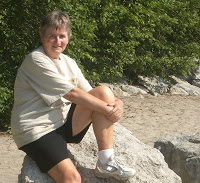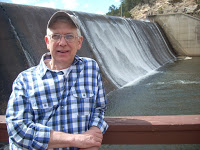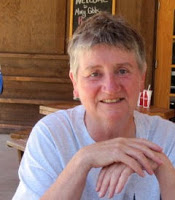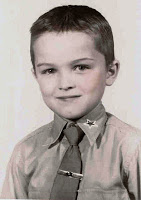Aaron Burr’s mother was Esther Edwards (my great, great XXXX Aunt)
Aaron Burr Jr. (February 6, 1756 – September 14, 1836) was an American politician. He was the third vice president of the United States (1801–1805), serving during President Thomas Jefferson’s first term. Burr served as a Continental Army officer in the Revolutionary War, after which he became a successful lawyer and politician. He was elected twice to the New York State Assembly (1784–1785, 1798–1799),[1] was appointed New York state attorney general (1789–1791), was chosen as a United States senator (1791–1797) from the state of New York, and reached the apex of his career as vice president.
Born Gore Vidal = Eugene Louis Vidal October 3, 1925 West Point, New York, U.S.
Died July 31, 2012 (aged 86) Hollywood Hills, California, U.S. Nationality American
Other names Eugene Luther Vidal, Jr.
Education Phillips Exeter Academy
Occupation Writer, novelist, essayist, playwright, screenwriter, actor
Known for The City and the Pillar (1948) Julian (1964) Myra Breckinridge (1968) Burr (1973) Lincoln (1984)
Political party Democratic
Movement Postmodernism Ghost is a 1990 American romantic fantasy thriller film starring Patrick Swayze, Demi Moore, Whoopi Goldberg, Tony Goldwyn, and Rick Aviles. It was written by Bruce Joel Rubin and directed by Jerry Zucker.[3] Of course, poor Patrick Swayze is dead.
Born Patrick Wayne Swayze August 18, 1952 Houston, Texas, U.S.
Died September 14, 2009 (aged 57) Los Angeles, California, U.S.
Cause of death Pancreatic cancer
Resting place Ashes scattered in New Mexico ranch
Nationality American
Alma mater Coastal Carolina University
Occupation * Actor * dancer * singer-songwriter
Years active 1979–2009
Spouse(s) Lisa Niemi (m. 1975; his death 2009)
**********************************************
I, Louis L. Brown, qualify as being a ghost since, in a bicycle accident 3 years ago, after I was taken via ambulance to the ICU at Denver Health Center, technically I died, according to the woman doctor, Dr. Johnson, who described what happened to me since personally I do not recall any of the trauma I suffered. I was bicycling in Wheat Ridge, near 52nd Avenue and Chase Street, and to judge by the bending and denting of my bicycle chain guard, I must have been hit by a car or truck or some vehicle.
Dr. Johnson said she did not personally save me, it was a medical technician. While in the ICU, I did not have the energy to ask to meet and thank the medical technician. I was there 3 weeks then I was transferred to Presbyterian Medical
Center in Denver, and, from there, I was transferred to Briarwood Rehab Center for another three weeks. The second half of my stay at Briarwood was quite pleasant and the food was very good. During the first half of my stay there I was fed through a stomach tube. I did not really adjust to that, so I barfed a a lot. Boo!
++++++++++++++++++++++++++++++++
Another interesting “ghost” for me is my deceased brother Thomas D. Brown who, for 2 years while he was attending Queens College (in New York City), reacted to the War in Vietnam by applying for status as conscientious objector. At the end of the 2 years, the military denied his claim to be a conscientious objector but gave him a I-Y status (like I have). If necessary, I would have applied for status as a conscientious objector, but things did not go that way in my case. A lot of draft eligible men resettled in Canada. Eventually Thomas D. Brown died of lung cancer. He smoked too many cigarettes.
+++++++++++++++++++++++++++++
Another interesting ghost for me is my other younger brother, Charles F. Brown who worked as a manager in the 42nd Street Library in Manhattan. Like both of my parents, he was also against the War in Vietnam. He had an exceptionally beautiful Italian boyfriend, Pat Marra; they lived in the Bronx. Pat looked like a DaVinci painting. His hands were a work of art. Charlie died from drinking too many whiskey sours and Manhattans and Martini’s, etc. Pat Marra died from an overdose of cocaine.
++++++++++++++++++++++++++++++++++++++++
My parents, DeWitt Brown and Elinor Brown were also interesting characters who are no longer alive, but I will save them for another prompt in the future.
© 24 April 2017
About the Author
I was born in 1944, I lived most of my life in New York City, Queens County. I still commute there. I worked for many years as a Caseworker for New York City Human Resources Administration, dealing with mentally impaired clients, then as a social work Supervisor dealing with homeless PWA’s. I have an apartment in Wheat Ridge, CO. I retired in 2002. I have a few interesting stories to tell. My boyfriend Kevin lives in New York City. I graduated Queens College, CUNY, in 1967.












